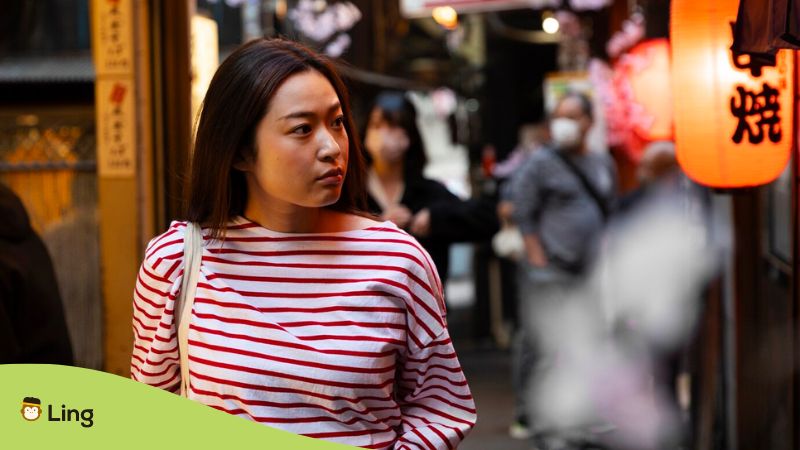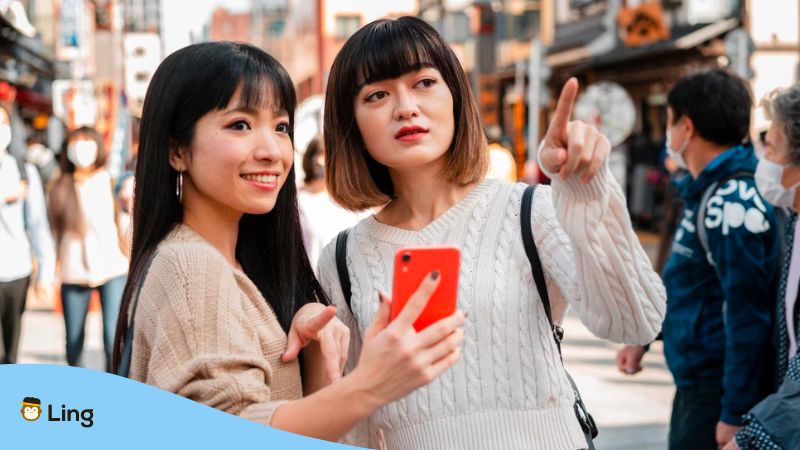As they say, when in Rome, do as the Romans do. But what about when you’re in China? The last thing you want to do is unintentionally offend someone with a cultural faux pas. But mastering a few polite Chinese phrases can help you avoid awkward situations and make a positive impression on locals.
From ordering food to navigating public transportation, knowing how to communicate politely in Chinese can take your travel experience to the next level. So buckle up, grab your notebook, and get ready to learn basic Mandarin Chinese phrases for your next trip!
Are you ready to speak Chinese? Let’s get started!
The Chinese Culture Of Politeness
It’s no secret that Chinese culture places a high value on politeness. From bowing to elders to addressing strangers with honorific titles, the Chinese have a long-standing tradition of showing respect and consideration for others. In fact, it’s not uncommon for a Chinese person to go out of their way to avoid offending, even if it means sacrificing their own desires or needs.
This cultural mindset can be seen in business negotiations and everyday social interactions. So, if you want to make a good impression on the locals, it’s essential to understand and embrace the Chinese culture of politeness. Trust us. A little effort goes a long way in building meaningful relationships with the people you meet on your travels.
Hence, mastering a few polite phrases in spoken Chinese can make a huge difference in your travel experience. While many Chinese people speak English, learning some basic Chinese phrases shows effort and appreciation for their language.
Whether you’re asking for directions, ordering food, or bargaining at a market, using the right phrases with proper Chinese pronunciation can help you easily navigate different situations.
Basic Polite Phrases In Chinese
Learning basic Chinese phrases is essential for anyone traveling to China or simply looking to impress their Chinese friends. But did you know that using polite phrases when visiting China can make a huge difference in how you are perceived?
Hello – 你好 (Nǐ Hǎo)
This is the most basic Chinese greeting, but don’t underestimate its power. Use it to greet anyone, from your taxi driver to your barista, and watch their face light up with a smile.
Example sentence:
- Hello! My name is Li Hua.
- 你好! 我叫李华。
- Nǐ hǎo! Wǒ jiào Lǐ Huá.
Thank You – 谢谢 (Xiè Xiè)
Expressing gratitude is always appreciated, and the Chinese language has a simple phrase for that. Use it whenever someone does something nice for you or compliments you.
Example sentence:
- Thank you for your help.
- 谢谢你的帮助。
- Xiè xiè nǐ de bāng zhù.
Excuse Me / Sorry – 对不起 (Duì Bù Qǐ)
This phrase is used to apologize or to get someone’s attention politely. It’s a great phrase to use when navigating through a crowded place or asking someone a question. Moreover, it’s essential to use this phrase when you’ve made a mistake to show respect for the other person.
Example sentences:
- Excuse me, may I ask where the restroom is?
- 对不起,请问一下,洗手间在哪里?
- Duì bù qǐ, qǐng wèn yī xià, xǐ shǒu jiān zài nǎ lǐ?
- Sorry, I was wrong.
- 对不起,我错了。
- Duì bù qǐ, wǒ cuò le
Nice To Meet You – 很高兴认识你 (Hěn Gāo Xìng Rèn Shí Nǐ)
This polite phrase is used when you’re meeting someone for the first time. It’s a great way to make a good impression and shows that you value the new relationship.
Example sentence:
- Nice to meet you, my name is John.
- 很高兴认识你,我叫约翰。
- Hěn gāo xìng rèn shí nǐ, wǒ jiào Yuē Hàn.

Polite Phrases For Saying ‘No’ In Chinese
Saying no can be awkward and uncomfortable, but it doesn’t have to be. With these Chinese phrases, you can politely decline invitations or offers without breaking a sweat. Plus, impress your Chinese-speaking friends with your language skills!
Sorry, I Can’t – 不好意思 (Bù Hǎo Yì Si)
This phrase is perfect for those times when you want to say “no” but still be polite. For example, if someone invites you to go bungee jumping and you’re too scared to go, you can use this phrase to decline the offer:
- I’m sorry, but I can’t.
- 不好意思,我不行。
- Bù hǎo yì si, wǒ bùxíng.
Maybe Next Time – 可能下次吧 (Kě Néng Xià Cì Ba)
This phrase is perfect for when you want to decline an invitation but still leave the door open for future opportunities. For example, when your friend invites you to go shopping but you’re not in the mood, you can say:
- Thank you for the invitation, but I don’t feel like going today. Maybe next time.
- 谢谢你的邀请,但我今天不太想去,可能下次吧。谢谢你的邀请,但我今天不太想去,可能下次吧。
- Xiè xiè nǐ de yāo qǐng, dàn wǒ jīn tiān bù tài xiǎng qù, kě néng xià cì ba.
I Need To Think About It – 我需要考虑一下 (Wǒ Xū Yào Kǎo Lǜ Yī Xià)
This phrase is perfect for when you’re not sure how to respond to a request or offer. For example, you’re in China for a business trip, and someone asks you to invest in their business, you can say:
- Thanks for the opportunity, but I need to think about it before making a decision.
- 感谢你的机会,但在做出决定之前,我需要考虑一下。
- Gǎn xiè nǐ de jī huì, dàn zài zuò chū jué dìng zhī qián, wǒ xū yào kǎo lǜ yī xià.

Polite Chinese Phrases For Making A Request
Making a request in Chinese can be a delicate dance. You want to get what you need, but not at the expense of offending anyone. Luckily, the Chinese language offers a plethora of polite phrases for making requests that will help you navigate any social situation with grace and ease.
Here are five key phrases that you can use to make requests like a pro:
Please Help Me – 请帮我 (Qǐng Bāng Wǒ)
This phrase is perfect for when you need a hand from a stranger. Imagine you’re lost in the back alleys of Shanghai and must find your way back to your hotel. Just ask a friendly local with a smile:
- Please help me. I can’t find my way.
- 请帮我。我找不到路了。
- Qǐng bāng wǒ, wǒ zhǎo bù dào lù le.
Can/Could You – 能不能 (Néng Bù Néng)
This phrase is incredibly versatile and can be used in various situations. Whether you’re asking a waiter for a refill or requesting a favor from a colleague, this phrase is your go-to. For example, you might ask a vendor at a night market in Beijing:
- Can I have some fried chicken?
- 能不能给我一份炸鸡?
- Néng bù néng gěi wǒ yī fèn zhá jī?
Is It Possible To – 可不可以 (Kě Bù Kě Yǐ)
This phrase is more indirect and can be used when you want to make a request without sounding too demanding.
- Is it possible to have extra towels?
- 可不可以给我一些额外的毛巾?
- Kě bù kě yǐ gěi wǒ yī xiē é wài de máo jīn?

Polite Chinese Phrases For Asking Questions
As a traveler in China, it’s essential to know how to ask questions politely. After all, manners make the world go round. Here are some handy phrases to use when inquiring about something without being rude.
May I Ask? – 请问? (Qǐng Wèn?)
This phrase is like a magic wand, summoning the helpful spirits of the Chinese people wherever you go. Whether you’re lost in the maze of Beijing’s hutongs or trying to order a dish you can’t pronounce, 请问? (qǐngwèn?) is the keyword.
For example:
- May I ask how much this costs?
- 请问这个要多少钱?
- Qǐng wèn zhège yào duōshǎo qián?
Sorry To Bother You – 打扰一下 (Dǎ Rǎo Yī Xià)
This phrase is like a gentle tap on the shoulder, a polite way of asking for someone’s help or attention. Use it when asking for directions or recommendations or for a friendly chat.
For example:
- Sorry to bother you, but can you recommend a good restaurant in this area?
- 打扰一下,你可以推荐这个地区的好餐厅吗?
- Dǎ rǎo yī xià, nǐ kěyǐ tuījiàn zhège dìqū de hǎo cāntīng ma?

Politeness Matters
Well, there you have it! You now have the power to impress native Chinese speakers and show off your linguistic finesse with these 10+ polite Chinese phrases. From casual phrases to more formal expressions, you’ll be able to easily steer around different situations.
So, before you jet off on your next adventure, be sure to master these common Chinese phrases. Not only will it show respect to the native Chinese speakers you encounter, but it might just make for a more enjoyable and memorable trip.
Whether you’re a casual traveler or a young-age backpacker, it’s always better to be polite. And who knows, you might impress a native Chinese speaker or two with your newfound language skills. If you want to learn more, check out the Ling app!
Learn Chinese With Ling
Are you tired of feeling lost in translation when traveling abroad? Want to impress your friends with your linguistic prowess? Look no further than the Ling app, the language learning app that makes mastering a new language both fun and easy!
Our platform is designed to make language learning easy and enjoyable with fun games, engaging quizzes, and interactive lessons that will have you speaking like a native in no time.
Whether you’re a beginner or an advanced learner, Ling App has something for everyone. Our intuitive interface and personalized learning plans will help you stay on track and achieve your language goals.
So what are you waiting for? Download the Ling app on the App Store or Play Store today and start your language learning journey!























